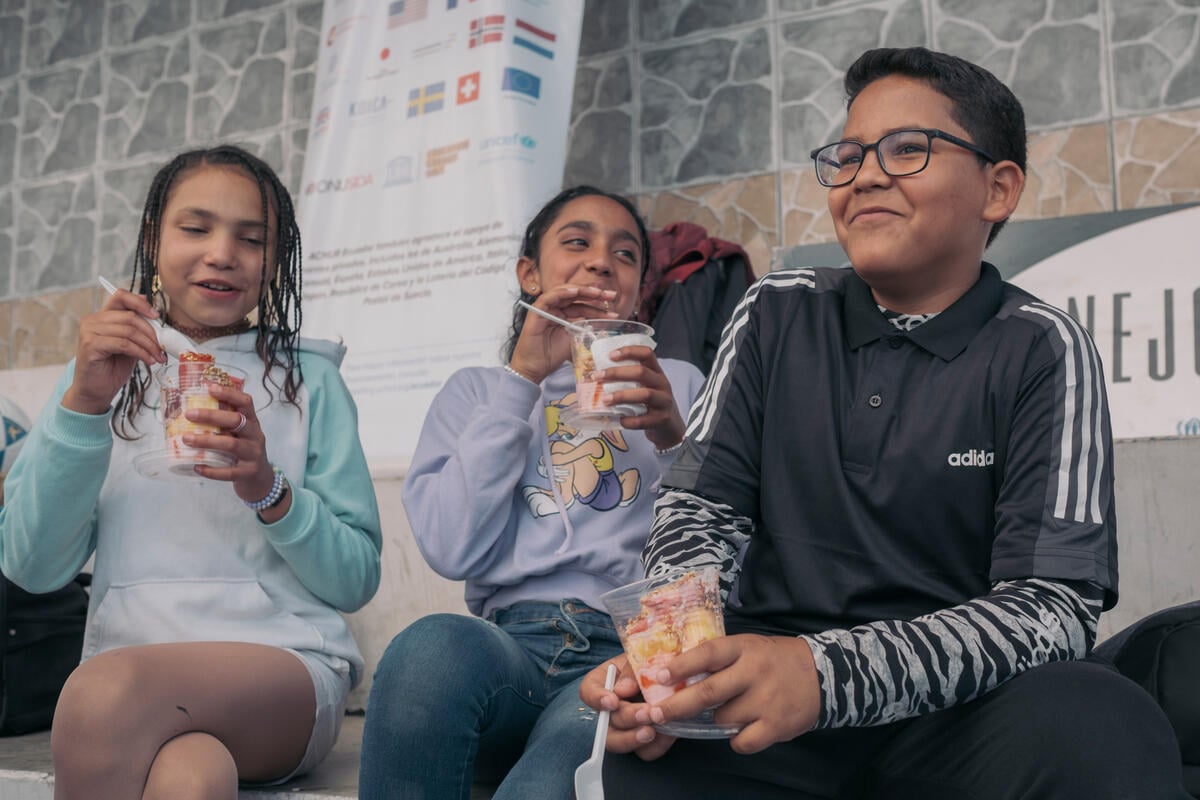Education on Hold: Almost half of school-aged refugee children from Ukraine missing out on formal education
Education on Hold: Almost half of school-aged refugee children from Ukraine missing out on formal education

Sofia, 9, a refugee from Ukraine, is looking forward to starting 5th grade in Bulgaria this year.
As the new school year commences across Europe, UNHCR, the UN Refugee Agency, is warning that refugee children and youth from Ukraine now face their third year of disrupted education, following the full-scale invasion in February 2022.
In a new Education Policy Brief released today, titled “Education on Hold*”, UNHCR reports that while 30 to 50 per cent of some 5.9 million Ukrainian refugees across Europe are children, only about half were enrolled in schools in host countries for the 2022-2023 academic year.
According to the report’s findings, factors contributing to low enrolment rates for refugee children include: administrative, legal and language barriers; a lack of information on available education options; a hesitancy among parents to enrol their children in host countries as they hope to return home soon to Ukraine; and uncertainty about eventual reintegration into the Ukrainian education system.
Another major obstacle is the lack of capacity of schools in host countries. With an unprecedented number of refugee children arriving in the months following the war, many schools in countries of asylum simply did not have the physical space or number of teachers required to respond and accommodate new arrivals.
UNHCR is concerned that unless urgent action is taken, hundreds of thousands of Ukrainian refugee children will continue to miss out on education this year.
With the ongoing full-scale war in Ukraine, major efforts are required to avoid long-term damage to children’s learning, potential and prospects. Disruption to education continues to be a major issue, with some 5 million people internally displaced, and schools – among other critical civilian infrastructure – destroyed.
To ensure the inclusion of refugee children in national education systems in host countries across Europe, UNHCR’s Education Policy Brief outlines a number of key recommendations to governments to reduce barriers and foster learning. These include:
- Advancing the inclusion of refugee children and youth into European national education systems and increasing the capacity of schools so every refugee child can be accommodated. While temporary measures may be used in the short term, longer-term planning and resources are essential to ensure adequate space, capacity and teachers. The coming year should be used by States and education institutions to plan ahead to ensure all refugee children can enrol in the next school year.
- Ensuring that refugee parents receive detailed information about education options for children and youth and links to the Ukrainian education system, enabling them to make informed decisions.
- Maximizing the quality and compatibility of educational options available to refugees. This can be achieved by putting in place swift procedures for mutual recognition of grades, certificates and diplomas, sharing data on academic performance and mobility and by putting in place uniform laws and directives, preferably at a regional level, to make both longer-term stays and return to the Ukrainian education system as easy as possible.
The brief also provides practical information for refugee parents and answers key questions on the reintegration of children into the Ukrainian education system once they are able to return home.
UNHCR works closely with UNICEF, which coordinates the education response of humanitarian partners in Ukraine and neighbouring countries.
Notes
*The full title of UNHCR’s Education Policy Brief is: “Education on Hold: Addressing barriers to learning among refugee children and youth from Ukraine – challenges and recommendations”
See recommended guidance of the European Commission, with input from UNICEF and UNHCR.
Media Contacts
- In Geneva, William Spindler, [email protected], +41 79 549 59 98
- In Geneva (regional), Louise Donovan, [email protected], +41 79 217 30 58









